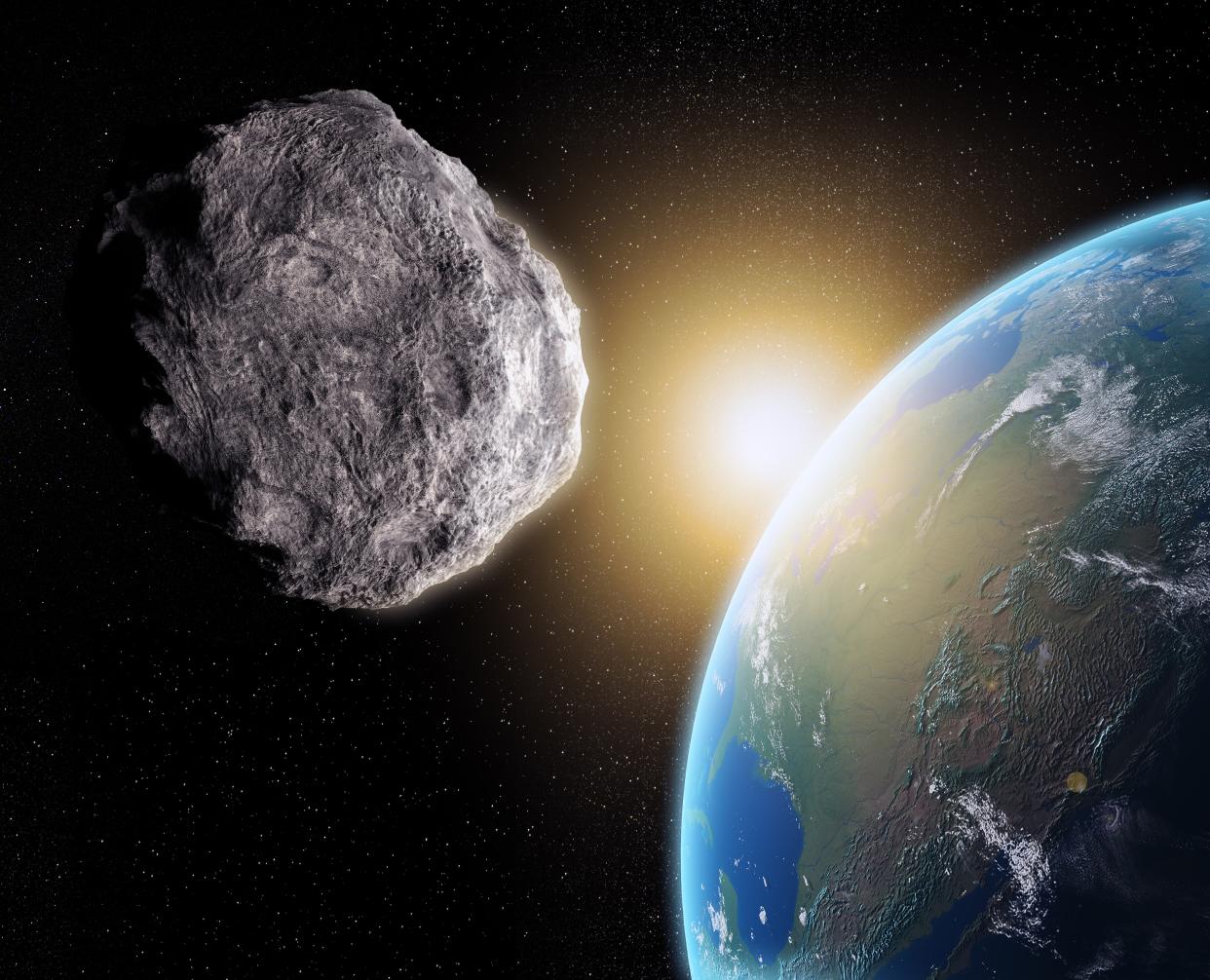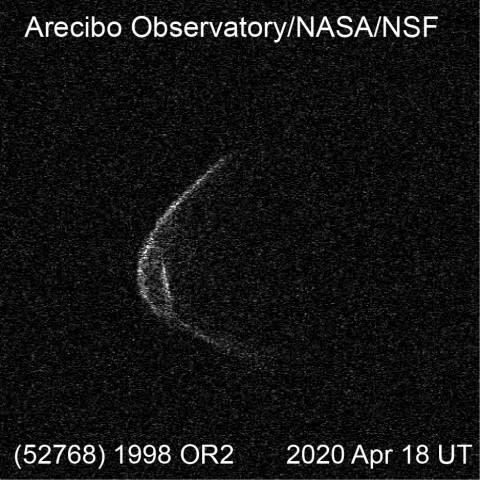Asteroid more than a mile wide to fly past Earth on Wednesday

A vast chunk of space rock more than a mile wide will fly past Earth tomorrow – but scientists have said there’s no chance it will smash into our planet.
The asteroid will fly past about 3.9 million miles away, still a fairly close shave in cosmic terms, which is 17 times further than the distance to the moon.
The asteroid is known as (52768) 1998 OR2 and was first spotted in 1998.
Read more: Earth has near miss with ‘city killer’ asteroid
It is classified as “potentially hazardous” by Nasa, but this does not mean it will crash into Earth in the near future.
The asteroid is classed as a potentially hazardous object (PHO) because it is bigger than 140 metres and will come within 5 million miles of Earth's orbit.
At present, no known PHO poses an immediate danger to the planet.
This is how far the asteroid 1998 OR2 will flyby Earth on 29th April... It will pass by Earth at a distance of 3.9 million miles away, which is 16 times the distance of the Earth to the Moon! pic.twitter.com/I3Pu8HBDO3
— Sci-Nature Hub (@HubNature) April 28, 2020
The Arecibo Observatory in Puerto Rico has been tracking the 1.2 mile-wide space rock on its approach.
Scientists have joked that the latest image of the asteroid looks like it is wearing a mask due to dust and debris passing around it.
Read more: Asteroid has ‘one in 7000 chance’ of hitting Earth this autumn
“The small-scale topographic features such as hills and ridges on one end of asteroid 1998 OR2 are fascinating scientifically,” said Dr Anne Virkki, head of Planetary Radar at the observatory.
“But since we are all thinking about COVID-19, these features make it look like 1998 OR2 remembered to wear a mask.”

Scientists are continuing to monitor the asteroid to see how it will move beyond 2020.
"The radar measurements allow us to know more precisely where the asteroid will be in the future, including its future close approaches to Earth," said Flaviane Venditti, a research scientist at the observatory.
Read more: There might once have been life on the moon
"In 2079, asteroid 1998 OR2 will pass Earth about 3.5 times closer than it will this year, so it is important to know its orbit precisely."
The team started observations on 13 April and will continue to collect data until 23 April, when the asteroid will no longer be visible from the facility.
"Although this asteroid is not projected to impact Earth, it is important to understand the characteristics of these types of objects to improve impact-risk mitigation technologies," Dr Virkki said.


